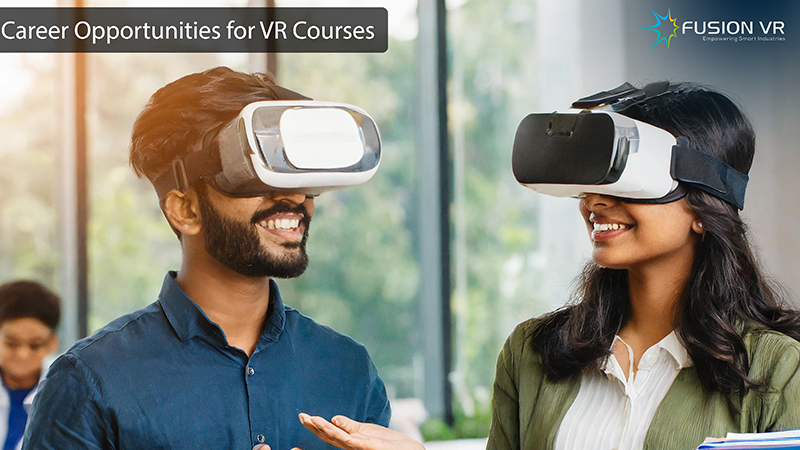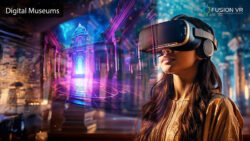Person 1: Hey! I’ve been thinking about taking a VR course, but I’m not entirely sure where it could lead me. Do you know what career opportunities are out there after completing one?
Person 2: Yes! There’s actually a ton of exciting career paths you could take after a VR course. It’s not just about gaming anymore VR is changing industries all over.
Person 1: I’ve always been into tech, but I’m curious about what kind of roles are available for VR.
Person 2: Well, one of the most common paths is becoming a VR developer. As a developer, you’d be responsible for building the VR experiences so, things like creating virtual worlds or interactive apps. You’d need to work with game engines like Unity or Unreal Engine. It’s pretty hands-on and ideal if you like coding and problem-solving.
Person 1: I’m more of a creative person, not a coder. Are there any other roles in VR Industry that might suit someone like me?
Person 2: Definitely! If you’re more into design, you could go for a role as a 3D artist or animator. You’d be designing all the visual aspects of a VR experience, like characters, environments, and objects. It’s a blend of creativity and tech, especially if you’re skilled with tools like Blender or Maya. You would be bringing the virtual world to life!
Person 1: What about those who want to create Virtual Reality VR games specifically? Is there a career for that?
Person 2: Oh, for sure! If you’re into gaming, VR game design is a great fit. Game designers in VR focus on creating the gameplay, storylines, and experiences specifically for virtual reality. You would need to understand how players interact with the VR environment and make sure everything is immersive and fun. It’s all about making sure the game feels real!
Person 1: Sounds like a dream job! But I’m also thinking about how VR can be used in education or training. Is there a role for that?
Person 2: You’re thinking in the right direction! There’s actually a growing demand for VR trainers and educators. In this role, you’d design VR content for training simulations in various industries – healthcare, aviation, manufacturing, you name it. It’s a great way to apply VR to help people learn complex skills in a safe, virtual environment.
Person 1: In VR Industry if I am not into developing or designing. What other options are out there?
Person 2: Good question! Another interesting role is becoming a UX designer for VR. This is all about making sure the user experience in VR is smooth and intuitive. You’ll design how users interact with the virtual environment, making sure it feels natural and easy to navigate. It’s a mix of design, tech, and psychology to create the best experience for users.
Person 1: I like the sound of that! What other roles might be a good fit?
Person 2: You could also consider working as a VR product manager. In this role, you’d manage the development of VR products from start to finish. You’d work with developers, designers, and other teams to make sure the product meets market needs and is delivered on time. It’s a more strategic role if you’re into overseeing projects and working cross-functionally.
Person 1: Are there any roles in industries like healthcare for VR?
Person 2: Actually, yes! VR specialists in healthcare are becoming more in demand. You’d help develop VR applications for things like pain management, surgical training, or physical rehabilitation. VR is a game-changer in healthcare, helping to improve patient care and provide realistic training for doctors and nurses.
Person 1: That’s amazing using VR to help people! What about marketing? Can VR be used there?
Person 2: Absolutely! VR marketing specialists are a hot commodity. With VR, you can create immersive ad experiences or product demos that captivate customers in ways traditional ads can’t. If you have a creative mind and a knack for storytelling, this could be a fantastic career path.
Person 1: Wow, so there are so many options! And what if I prefer working on my own or with multiple clients?
Person 2: Well, you could always go the freelance route as a VR specialist. Many companies are looking for VR professionals on a project-by-project basis. This could mean designing VR experiences, creating prototypes, or providing consulting. It’s a great option if you prefer flexibility and variety in your work.
Person 1: This is all so exciting! It really seems like VR is opening up a whole new world of career possibilities.
Person 2: Exactly! VR is transforming industries, and with the skills you’d gain from a course, you’d be ready to jump into some of the most innovative fields out there. The possibilities are pretty much endless!



